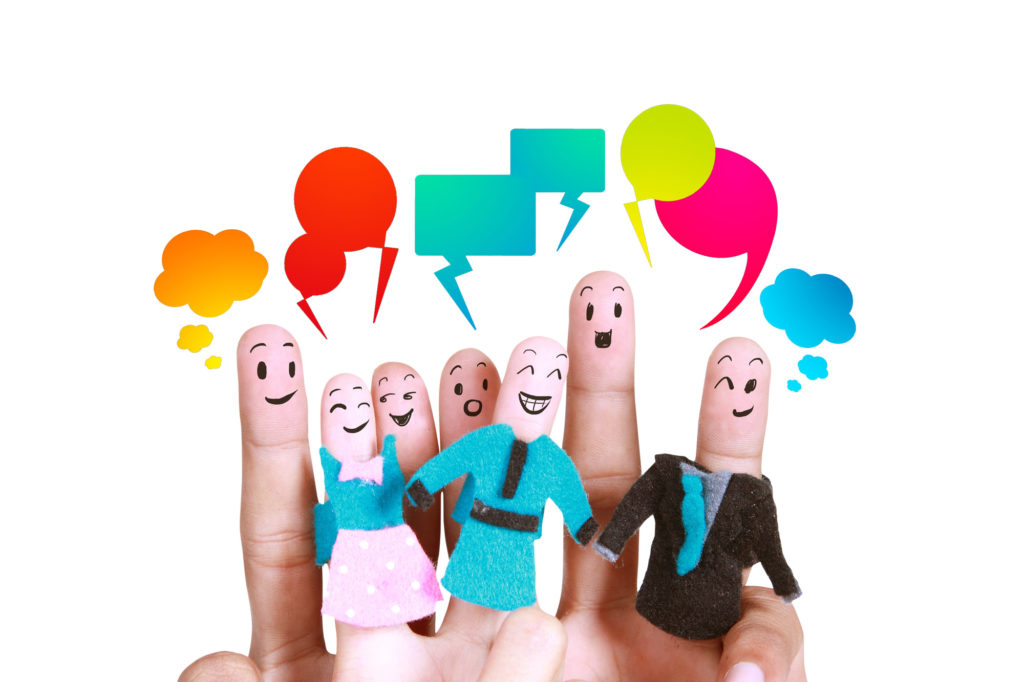
When was the last time someone sat you down and taught you essential social skills? Probably never. Why?
Because for the most part, we’re expected or assumed to pick up these skills through school, work, or at home. However, this is simply not true.
Social skills, just like math or science are skills that need to be taught, learned, and practiced in order to become good. It’s the same with adults teaching children how to share or how to behave because these skills are not instincts. They need to be taught and those who are taught earlier on will have an easier time in life.
The same can be said for adults.
Those who carry better social etiquettes tend to be more successful in their schools, jobs, and personal life. Whether you want to improve your own social skills or you’re just curious, check out our list of social skills for adults to see if there’s anything you might’ve missed.
10 Social Skills that Everyone Should Learn to Lead a Successful Life
The word “socialize” means to interact and converse with other people. This includes how you interact in casual or formal settings, with groups or individuals. This also includes how you present yourself verbally and physically through your body, and how you behave and react to others.
Let’s take a look at a list of social skills that we can all use a reminder of.
1. Active Listening
People who are in the health profession are particularly good at active listening because they’re taught their bedside manner can make a difference in their patient’s healing process. Giving someone your undivided attention can quite literally heal someone and make them feel better.
The next time you speak with someone, pretend you’re a doctor for a second and give the person your undivided attention. This means making direct eye contact, responding or nodding to show acknowledgment, and letting them finish before interrupting.
Then see how it affects your interaction. You’ll notice you’re much less distracted, more engaged in the conversation, and overall, have a much better conversation.
2. Admit to What You Don’t Know
You might be having a really great conversation with someone when all of a sudden, they mention something you don’t understand but you pretend you do because you’re afraid to admit you don’t. Don’t do this because you’re only risking looking foolish when they find out and it’ll make them feel embarrassed for going on and on about something you don’t understand.
Instead, take this as an opportunity to learn something new. Say, “I’m sorry, I don’t know what that is,” and nine out of ten times, even if they’re surprised, this person will be happy you mentioned it, otherwise, you’re doing a disservice to you both. If they make fun of you then do you really want to continue the conversation with them anyway?
3. Put Away the Technology
Twenty or thirty years ago, we probably wouldn’t have to include this but in today’s world, this is a huge problem. Everywhere you look, you’ll see people leave their phones out during meetings, dinners, and sometimes even during intimate conversations. This destroying our social skills.
By leaving your phone out in the open during a meeting or conversation, you’re sending out signals that your attention is elsewhere and the person you’re speaking with is not worth your full attention. Instead, put the technology away and give the person your full attention. They’ll respect you more.
Teenagers who grew up on technology are especially vulnerable to this rule because they probably don’t even realize it’s a rude thing to do. Read more here if you’re interested in learning how to teach teens social skills.
4. Learn to Disagree Without Being Defensive
When someone says something upsetting to us, it’s only natural to want to be defensive. It’s hard not to but the most successful people in life know the best way to handle criticism is not to hurt the person back but to ask the person why they feel that way and hear them out.
Once you do, the other person can respond in two ways. They can either explain to you calmly and engage in a civil conversation or they can become angrier because they never learned this social skill.
If the latter happens, do not react to it and stoop the other person’s level. Simply walk away and let it go.
Most people only disagree when they truly believe they’re right–not because they want to hurt you. Try to understand where the other person is coming from and if you still don’t agree then let the person know. Ask them to respect your beliefs just like you respect theirs.
5. Be Humble About Your Mistakes
Everyone who finds people who aren’t afraid to share their mistakes humbling and honest. Those are signs of maturity and humility, traits that everyone admires. Not everyone is able to talk about their mistakes openly though and you should only do it if you’re comfortable.
However, know that there is a lot that people can learn from your mistakes and they’ll find vulnerability relatable. What makes people who are relentlessly unshy about their flaws is that they remind everybody we’re all human and nobody is perfect. If you can share what you learned from your mistakes too, people will be even more impressed.
6. Be Willing to Offer and Ask For Help
If you see someone struggling and it doesn’t hurt you to help, offer it. You never know how much the person needs it. And vice versa, if you need help, don’t be afraid to ask either.
There are always people willing to help you out. Offering and asking for help can also open up new opportunities or lead to new relationships. In work settings, this can also increase teamwork and boost productivity.
7. Don’t Be Passive Aggressive
If someone does something to upset you, do not assume the other person knows. Sometimes, things that seem totally inappropriate to us are not to others.
Everyone has different upbringings and different definitions of what’s okay and what isn’t. If you’re mad at someone, let them know what you’re upset about and why.
Don’t just leave passive aggressive hints around that you’re mad. This is childish and unproductive.
8. Learn to Say “No”
There are times we should push ourselves to do more and then there are times we should draw boundaries. Learn where your boundaries are and stick to them.
Do not let other people influence your decisions or peer pressure you into doing certain things. Learn to say “no” to things that make you uncomfortable and not feel guilty about it.
Knowing when to say “no” shows others you are comfortable with who you are, you know what you want, and that you are trustworthy because you believe in yourself. It is a true sign of self-respect and people will respect you more because of it.
9. Learn to Apologize Sincerely
Have you seen parents teaching their children to apologize when they misbehave? What do they do? They either cry and refuse or begrudgingly do it.
We all still have that inner child in us except the only difference is as adults, we can put that aside.
Apologizing or admitting to our own mistakes is probably one of the hardest social skills for most people. It takes a lot of work and courage to put the ego aside and admit to someone we’re wrong, especially if it’s someone we do not like. But if you’re truly at fault, then apologizing sincerely is absolutely necessary and is a true sign of maturity.
10. Stop Over Apologizing
This is the opposite of the last tip but it needs to be said. Some people apologize frequently for things that they didn’t do or things that didn’t harm anyone.
They do it out of habit because they’ve been conditioned to think that makes them more likable to people. But this is simply not true. Apologizing too much is not only an unattractive trait but it’s detrimental to the person’s self-worth.
The next time you catch yourself wanting to apologize for something, ask yourself, is it really your fault? Did you cause it?
If not then don’t apologize. You can say you’re sorry about the situation but you don’t need to apologize for things you didn’t do.
Never Too Late to Learn
If you’re thinking, some of these tips contradict each other, you’re right because what works for one situation may not work for another.
Also, everyone has their own strong points and weak points. If you find that something doesn’t really resonate with you then ignore it, part of what makes a person good at social skills is they know what they are good at and what they need to improve on.
At the end of the day, social skills aren’t just to impress others. It’s a way to improve your relationship with others, gain new opportunities, improve your own self-esteem, and attract more success in your life.
If you would like more lifestyle tips and advice like this, be sure to visit our blog for more.

